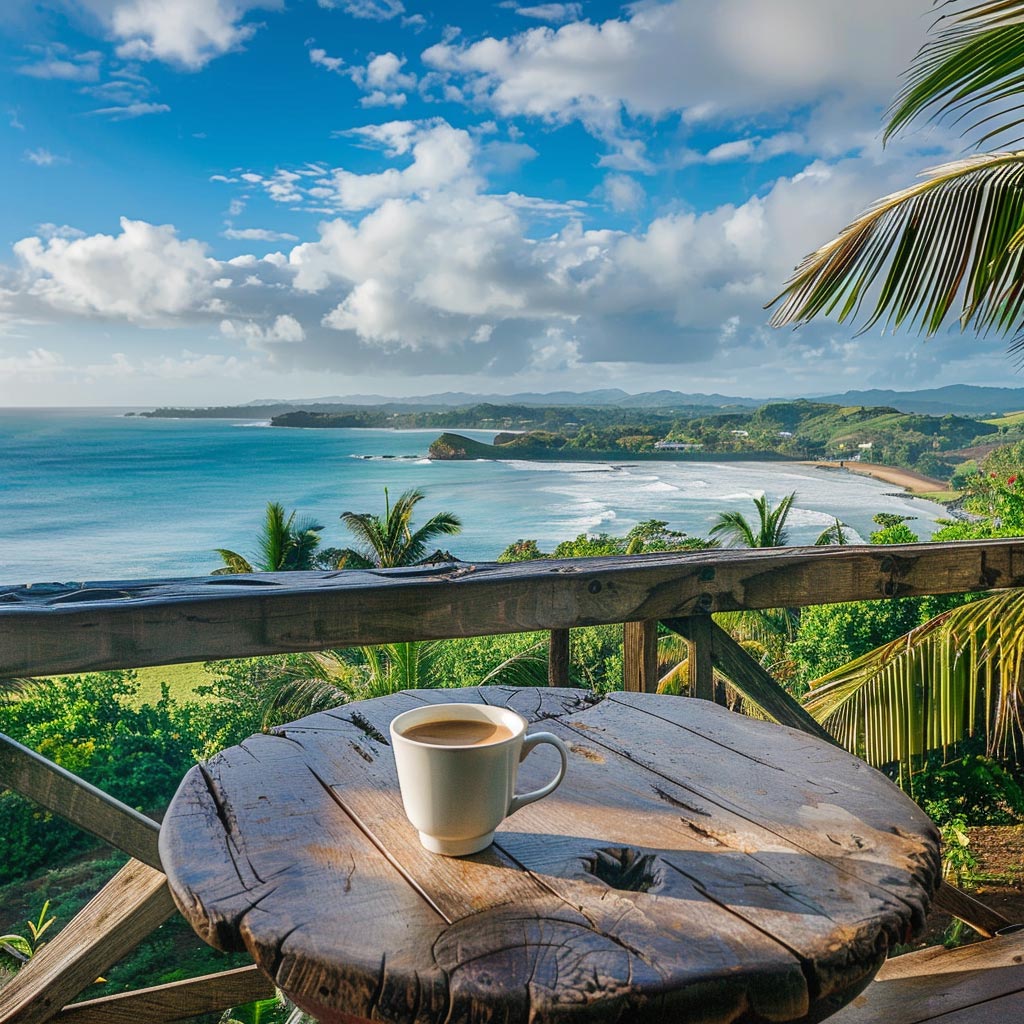The island of Puerto Rico is known for its rich, aromatic coffee, which is celebrated for its smooth body and vibrant acidity. Coffee is an integral part of Puerto Rico's culture and economy by supporting numerous small-scale farmers. The island's coffee heritage dates back centuries, contributing to its renowned quality. From local cafes to international markets, Puerto Rican coffee is highly esteemed.
History of Coffee in Puerto Rico
Introduced by Spanish settlers, Puerto Rican coffee cultivation began in the early 18th century. By the late 19th century, Puerto Rico had become one of the world's leading coffee exporters and was known for its high-quality beans. The industry faced significant challenges in the 20th century, including hurricanes and economic shifts. Today, efforts are underway to revive and enhance Puerto Rico's coffee production.
Coffee Growing Regions
Puerto Rico's primary coffee-growing regions include the central mountainous areas of Adjuntas, Yauco, and Lares. These regions benefit from high altitudes and rich volcanic soil, making them ideal for growing coffee.
Adjuntas is known for its balanced and smooth flavors, while Yauco produces coffee with bright acidity and fruity notes. Lares offers rich, full-bodied profiles with hints of spice.
Varieties of Coffee Beans
Puerto Rico primarily grows Arabica coffee beans, prized for their superior flavor and aroma. Common specialty coffee varieties include Bourbon, Typica, and Catuaí.
Bourbon beans are known for their deep, complex flavors, while Typica offers a smooth, balanced profile. Catuaí, a hybrid variety, is valued for its resilience and sweet, nutty flavor.
Cultivation and Harvesting Practices
Puerto Rican coffee farmers use traditional and sustainable farming methods when growing coffee to ensure high-quality beans. Shade-grown coffee is common because it provides protection from direct sunlight and preserves biodiversity.
Harvesting is done by hand, allowing for the selective picking of ripe green coffee cherries. This meticulous process ensures that only the best beans are collected.
Processing Methods
Puerto Rico uses several coffee processing methods, including washed and natural processes. The washed process involves fermentation and washing, which brings out the coffee's clean and bright acidity. In natural processing, the beans dry inside the cherry, giving the coffee fruity and wine-like characteristics.
These methods contribute unique qualities to Puerto Rican coffee, enhancing its rich and robust profile.
Flavor Profile and Tasting Notes
Puerto Rican coffee is celebrated for its rich, aromatic flavors and vibrant acidity. Typical tasting notes include chocolate, caramel, and hints of citrus and spice. These flavors make Puerto Rican coffee great for lattes or café con leche.
The island's diverse growing regions contribute to a variety of flavor profiles that appeal to different tastes. Puerto Rican coffee consistently offers a high-quality and enjoyable drinking experience.
Challenges and Sustainability Efforts
The Puerto Rican coffee industry faces challenges such as climate change, hurricanes, and fluctuating market prices. To address these issues, significant efforts are being made towards sustainability and innovation. Initiatives include promoting organic farming, developing disease-resistant coffee varieties, and implementing fair trade practices. These efforts aim to secure a sustainable future for Puerto Rican coffee.
Conclusion
Puerto Rico's coffee industry is a blend of rich history, diverse regions, and meticulous cultivation practices. The island's dedication to quality and sustainability ensures its continued prominence in the global coffee market. Known for its rich, aromatic flavors and vibrant acidity, Puerto Rican coffee remains a favorite among coffee lovers. With ongoing efforts to innovate and sustain this cherished industry, the future looks promising for Puerto Rican coffee.
Explore the rich flavors of Puerto Rican coffee and other exceptional varieties of coffee at Mystic Monk Coffee. Shop now to experience the best in quality and taste!
Read more

Jamaican coffee has been recognized for decades as some of the world’s best coffee ever produced. Although it is produced in far smaller amounts than other Caribbean and South American coffee, that...

Peruvian coffee is celebrated for its bright acidity and complex flavors. This delicious coffee plays a vital role in Peru's economy, supporting many smallholder farmers and rural communities. The ...

